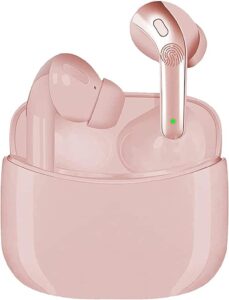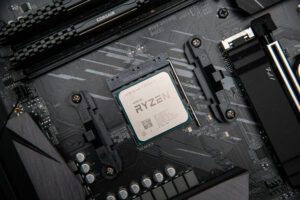In today’s fast-paced digital world, having a laptop with speedy performance is essential for both personal and professional use. One crucial factor that greatly affects a laptop’s overall speed and responsiveness is its storage system. When it comes to storage options, two main contenders stand out: Hard Disk Drives (HDD) and Solid-State Drives (SSD). In this article, we’ll delve into the differences between HDD and SSD and explore how each choice impacts your laptop’s performance. So, let’s dive in!
Understanding HDDs and SSDs:
HDDs: Hard Disk Drives have been the traditional storage option for laptops and computers for decades. They utilize spinning disks and mechanical read/write heads to store and retrieve data.
SSDs: Solid-State Drives are the newer, more advanced storage technology. They use flash memory chips, similar to those found in USB drives and memory cards, to store data. SSDs have no moving parts, making them significantly faster and more durable than HDDs.
Speed and Performance:
HDDs: While HDDs have improved over the years, they still lag behind SSDs in terms of speed. The mechanical components of HDDs limit their read and write speeds, resulting in longer boot times, slower application launches, and overall sluggish performance.
SSDs: SSDs offer remarkable speed advantages over HDDs. With faster data access times and high sequential read/write speeds, SSD-equipped laptops can boot up in seconds and provide snappy performance. Opening large files and multitasking become much smoother experiences with an SSD.
Durability and Reliability:
HDDs: Since HDDs rely on spinning disks and moving parts, they are more susceptible to physical damage from shocks or drops. Over time, regular wear and tear can lead to mechanical failures and data loss.
SSDs: SSDs, being solid-state without any moving parts, are more resistant to physical damage. They can withstand shocks, vibrations, and extreme temperatures better than HDDs. Additionally, SSDs are less prone to data corruption and have a longer lifespan.
Storage Capacity and Cost:
HDDs: When it comes to storage capacity, HDDs offer a significant advantage. You can find HDDs with terabytes of storage space at a relatively lower cost compared to SSDs.
SSDs: SSDs, while costlier per gigabyte, have become more affordable in recent years. However, they still offer smaller storage capacities compared to HDDs. For users requiring massive storage for media libraries or extensive data, HDDs may be a more cost-effective choice.
FAQs about HDD and SSD:
Q1. Can I upgrade my laptop from HDD to SSD?
A1. In most cases, yes. If your laptop has a standard 2.5-inch drive bay, you can easily replace your HDD with an SSD. It’s a highly recommended upgrade to boost performance.
Q2. Is an SSD worth the additional cost?
A2. Yes, if you value speed and responsiveness in your laptop. The noticeable performance gains and enhanced user experience make SSDs a worthwhile investment.
Q3. Can I use both an HDD and SSD in my laptop?
A3. Absolutely! Many laptops come with dual-drive configurations, allowing you to use an SSD for the operating system and frequently accessed applications, and an HDD for bulk storage.
Q4. How do I transfer data from my HDD to an SSD?
A4. You can use cloning software or perform a fresh installation of your operating system and transfer your data manually. Make sure to back up your data before attempting any changes.
When it comes to laptop storage options, choosing between an HDD and SSD can have a significant impact on your overall computing experience. While HDDs offer larger storage capacities at a lower cost, they come with slower read and write speeds, are prone to physical damage, and have a shorter lifespan. On the other hand, SSDs offer faster boot times, speedy application launches, enhanced durability, and reliability. They are more expensive per gigabyte, but the performance gains and overall user experience make them a worthwhile investment.
Ultimately, the decision between an HDD and SSD comes down to your individual needs. If you require vast amounts of storage for media or data, an HDD may be the better choice. But if you value speed, responsiveness, and durability in your laptop, an SSD is the way to go. By understanding the differences between HDDs and SSDs, you can make an informed decision that best suits your needs and budget.



